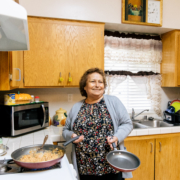Contact: Kristin Blum
kristin@ruralhome.org
(202) 842-8600
Washington, DC, March 6, 2024 – The Housing Assistance Council (HAC) is announcing the creation of the Center for Rural Multifamily Housing Preservation, a cross-disciplinary initiative to preserve rural rental housing, particularly properties financed through the U.S. Department of Agriculture’s “Section 515” program. The Center will provide technical assistance and expertise to preserve the long-term affordability of this critical housing stock. HAC’s Kristin Blum, a recognized expert in the affordable housing industry, has been tapped to lead the initiative.
“The time to act is now,” according to HAC CEO David Lipsetz. “The cost of housing is at a historic high across the United States. Workers, seniors, young people, and families are all feeling the pinch. As the nation’s rural housing intermediary, HAC must do its part to help small towns keep great quality housing and build to meet the demands of the modern economy. The Center will do just that.”
The Center for Rural Multifamily Housing Preservation will promote what works, create solutions where needed, and advance the role of housing organizations in rural communities. It will draw on HAC’s decades of success working with communities to preserve existing affordable rental housing and build more where it is needed. “The Center will bring together HAC’s unique combination of resources – lending, research, policy and direct technical assistance – to both preserve individual properties and redefine the preservation process,” Kristin Blum points out.
Rental homes financed by USDA are an important source of affordable rental housing that can be found in 87 percent of all U.S. counties. The Department’s Section 515 program alone produced 550,000 affordable apartments in rural communities. Unfortunately, the program has not produced new units in over a decade and has lost more than 150,000 of its original units to reach its current size of less than 390,000 units, according to the recent FY2023 Multifamily Housing Occupancy Report. In many rural communities, these apartments are the only affordable rental housing available. Two thirds of those families and individuals in Section 515 properties are seniors or individuals with disabilities, and the average income of tenants is less than $16,000.
In the face of this escalating crisis, existing preservation efforts have suffered from a lack of adequate public and private funding and a disproportionate focus on unique transactions. A cohesive, broad preservation strategy is needed to effectively address this crisis before it reaches its peak in the next several years. Through the Fiscal Year 2024 appropriations bill, Congress has granted USDA the authority to pilot a new proposal to decouple Section 515 mortgages and Section 521 rental assistance – an opportunity that will require substantial stakeholder engagement and capacity-building to be successful.
“These apartments are home to families, seniors, and individuals with disabilities who could otherwise face homelessness,” Lipsetz said. “It’s time for the country – including the federal government and philanthropy – to invest some real muscle in preserving these vital homes before they are lost forever.”
“I can think of nobody better than Kristin to lead this critical initiative,” continued Lipsetz, “She has done remarkable work as a senior member of HAC’s Lending team and brings a wealth of prior experience building the capacity of the nonprofit housing sector.” With support from the USDA and Fannie Mae, the Center for Rural Multifamily Housing Preservation will bring together all of HAC’s expertise across the fields of lending, technical assistance, federal policy, and research in pursuit of transformational solutions to preserve this critical stock of affordable rural rental housing.
For more information, contact: crmhp@ruralhome.org
About the Housing Assistance Council
The Housing Assistance Council (HAC) is a national nonprofit that supports affordable housing efforts throughout rural America. Since 1971, HAC has provided below-market financing for affordable housing and community development, technical assistance and training, research and information, and policy formulation to enable solutions for rural communities.
Explore some of HAC’s past work on Section 515 preservation:
HAC’s 2024 Rural Housing Policy Priorities
HAC’s 2023 Senate Banking Committee Testimony on Section 515 Preservation
HAC’s 2022 Annual Report
HAC’s 2022 Rural Research Brief on Section 515 Preservation
HAC’s 2018 “Platform for Preservation” Report on Section 515 Preservation
###

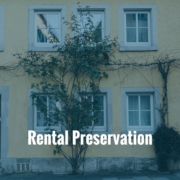
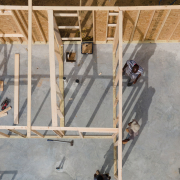 Rory Doyle
Rory Doyle
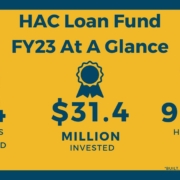
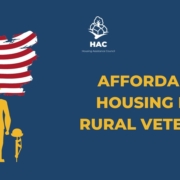 Housing Assistance Council
Housing Assistance Council